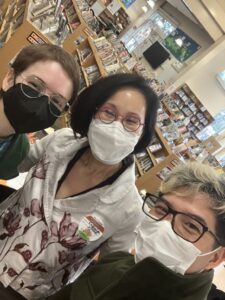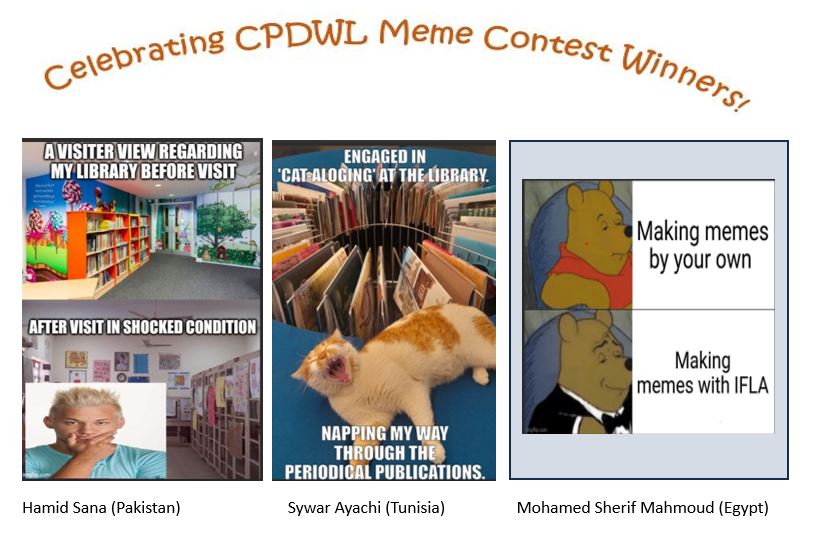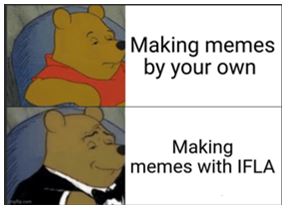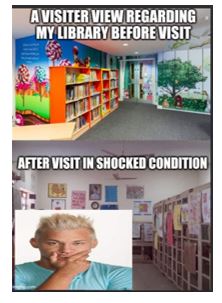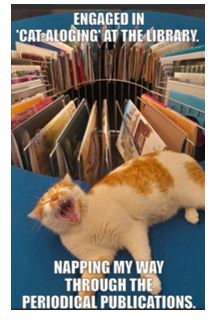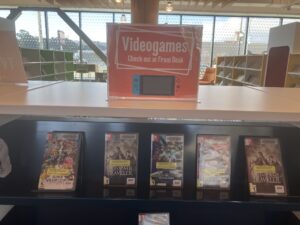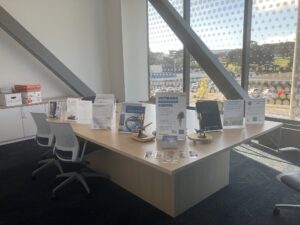
Talia Perry

Brian Mathews
The IFLA Continuing Professional Development and Workplace Learning (CPDWL) Section embraces all aspects of professional development and learning in the workplace in the period post-qualification to the end of a career. One of the exciting aspects of this section is that we explore how colleagues are promoting professional development learning in their communities, institutions, or associations.
In this interview, we feature two library professionals: Brian Mathews and Talia Perry from Carnegie Mellon University Libraries (USA) to talk about their latest project tracking professional development opportunities called, “Opportunity Incubator.” This platform enables colleagues in CMU Libraries to explore and identify upcoming conferences, funding sources or publications to publish in. They both share their thoughts about this project and professional development trends.
Thank you both so much for speaking with us. Can you tell us a bit about yourselves and your roles at Carnegie Mellon University Libraries?
Brian Mathews: I’m the Associate Dean for Research & Innovation at the Carnegie Mellon University Libraries. I’m very interested in creativity and innovation ecosystems and how libraries can systematically yet organically develop new services and engagement. Brian is currently working on a book about how libraries and other organizations can help address complex global challenges. More here: www.brianmathews.io
Talia Perry: I’m the Digital Projects & Digital Publishing specialist at the Carnegie Mellon University Libraries. With a background in the arts and humanities, I’ve written about the ways in which technological and material change has historically reshaped social experience—this research in turn feeds a reflexive practice that seeks to leverage design thinking and contemporary communication technology to build and support communities today.
We wanted to talk to you about this project called, “Opportunity Incubator” that you and your colleague, Talia Perry, worked on. This project will “identify journals where [colleagues] could publish, conferences where they could present, and funding sources for their projects, research, and professional interests..,” In Brian’s blog post, Brian described this project very well and we wanted to ask how it was to get buy-in from colleagues to build this project out for and with your CMU colleagues? What’s been the reaction from your colleagues in using this tool or learning about it?
This project emerged organically from the ground up. In conversations with librarians and staff, we heard frequent frustrations about finding and following venues in which to publish or present. Many of our colleagues come from diverse academic backgrounds, and so we wanted to provide a common framework that gathered together these points of engagement. Additionally, we have seen an increasing interest in sponsored projects. While there are a great many foundations and funding agencies, we wanted to be targeted and systematic in our selection. As we thought about this common interest across publishing, presenting, and funding, we started to conceive of them as opportunities—and with that, we imagined an incubator that could collect, curate, and connect people with these possibilities.
We developed a prototype in the Spring 2024 semester, and are working over the summer with some early adopters to test and develop it further. We will incorporate what we learn into an official release for our library in late summer or early fall. People are interested in exploring the tool, but so far it’s largely been an experimental side project for us. We’re eager to release it!
Brian also mentioned in the blog that there will be a chatbot component too, and will include GPT-4 for the prototype and Gemini later. What has been useful in using AI tools to support professional development learning?
We started by creating a large dataset, which we’ll continue to build upon. With the dataset in place, we can parse it out in different ways: It can be displayed on a calendar, in interactive lists, or in other ways on a website. We also wanted to experiment with generative AI.
We developed a personal GPT as a test. We loaded it with all the information we have pertaining to the conferences, journals, and funding agencies most relevant to our organization—over 300 records. The useful part of the chat assistant is being able to have a conversation across all the opportunity types. For example, let’s say you’re interested in doing work related to climate change, data literacy, and open science. You could identify places to present and publish, as well as how you might frame your narrative or consider your audience. That topic might work well as a case study in one place, an editorial in another, and as a learning module elsewhere. Additionally, you could find potential foundations or agencies that might fund work on that topic. The chat option helps facilitate a cohesive conversation across our spectrum of opportunities.
Is there anything that surprised you in working on this project or the process itself? If someone wanted to create something similar, what should they think about?
Tracking down future conferences is tough; there are a handful of conferences on our list less than a year away, and the final dates have not yet been published. Grants and foundation timelines are likewise often elusive, emerging and closing within short windows. That’s something we need to figure out going forward: how to keep things constantly refreshed and how we might be able to automate or at least predict patterns or cycles for these opportunities.
We talked about building the Opportunity Incubator in Jekyll or using a system like Notion, but ultimately decided to use the Google suite. This will reduce the entry barrier and upkeep since our organization already extensively uses Google Drive and Google Calendar. Central to the project is this giant spreadsheet (Google Sheet) that needs to be regularly updated, but in terms of ease of use and ease of export, this worked well enough for us. Building the core technical infrastructure took about a week, with little refinements as we experimented, but the more difficult and time-consuming part was identifying the core publications, conferences, and funding agencies, and all the related metadata.
With a project like this, it’s also easy to underestimate the number of decisions you’re making until you start making them, and how important those decisions end up being down the road—the questions that you ask always inform the data you’re gathering. While some of the information we were collecting was a given (e.g. identifying closing dates for calls for proposals) there were also inherent value judgments in the act of including or excluding certain data: As an institution that supports and promotes open access, for example, we wanted to note the open status of each journal in our list; on the other hand, we were less inclined to summarize citation metrics since the range of audience, format, and subject matter for our list of publications varied widely. Distilling the content of the opportunities into a discrete set of thematic tags was another level of decision-making; identifying the different fields and interests, even in very broad terms, while necessary for the ability to group and sort as the list grew, was a multilayered curatorial act (which only underscored the expertise of our colleagues working in cataloging and archival metadata!).
Professional development is very important in the LIS field as you know. What are your thoughts on the future of professional development in LIS? What are some professional development trends in LIS that you are seeing? It cannot just be artificial intelligence, right?
Brian: My general advice is don’t be too myopic. Go to lectures, workshops, and events outside of LIS. I have gained insight and inspiration listening to engineers talk about glacial melting, activists talking about community archives, artists talking about perceptions of time, and physicists talking about the beauty of art. I urge everyone to be curious and develop that as a skill—this leads to asking new questions and exploring new problems across our organizations and communities. By expanding our perspectives and skills, we can approach our work in more creative, inclusive, meaningful, and original ways.
With AI and automation, there will be an increasing demand for soft skills such as critical thinking, creativity, communication, community engagement, service development, and leadership. This is where I encourage people to invest their professional development. Data science and statistics and visualization techniques are extremely valuable, but being able to imagine, build, explain, re-interpret, and collaborate effectively is a timeless foundation.
One last thing, for me personally, I have gained the most from cohort-based programs. Virtual and in-person. There is something powerful and effective when a group of people gather for a limited time to learn and grow together.
Anything else you like to mention that we did not get to discuss?
We have big dreams for the Opportunity Incubator. The 1.0 version is focused on finding potential places to present and publish, as well as agencies who might support our work. We also want to integrate workflows, policies, processes, forms, and advice. So instead of just finding a grant, we can layer that with information, tools, and support to help move things forward at our institution.
We imagine it could also function as a community finding tool—who’s working on what or what opportunities exist for collaboration. By identifying participants and attendees from CMU, too, we might inspire a more strategic approach to conference attendance, as well as encourage more reflective post-conference conversation. Essentially, it’s about pooling resources and creating a framework to invite people to work together in different ways. In this sense, not only are we connecting people to a range of resources and opportunities, but we’re also aiming to connect them with each other.

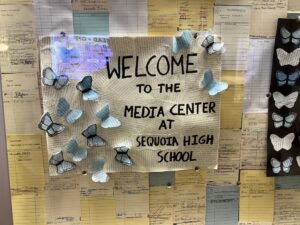
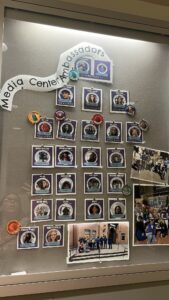
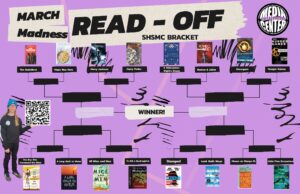

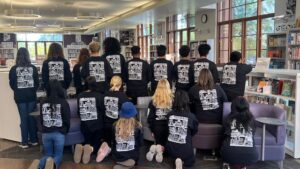
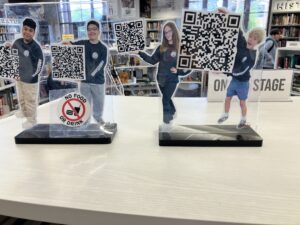 .
.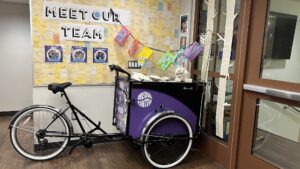
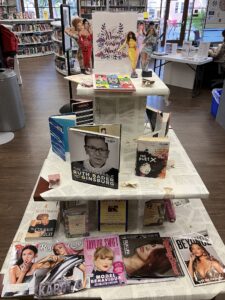
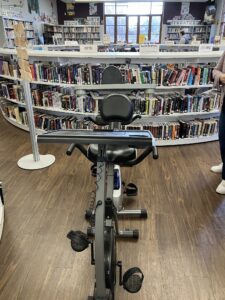
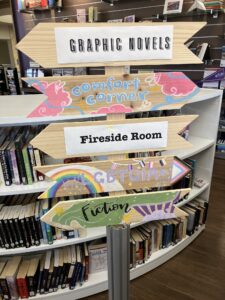
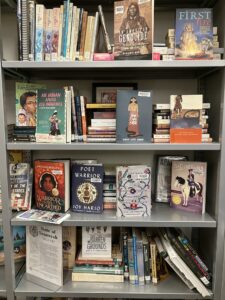
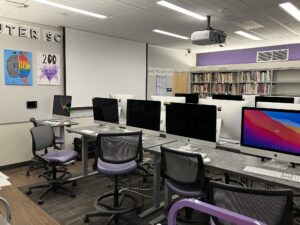
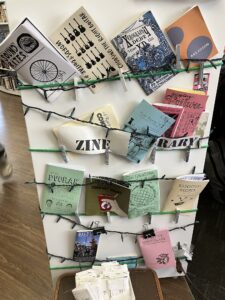
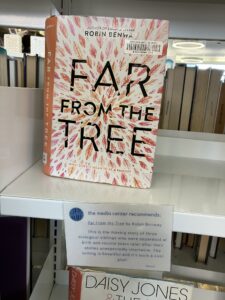
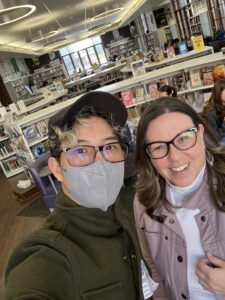

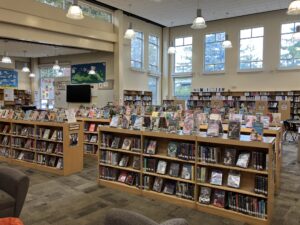 As part of this CPDWL blog series on visiting libraries, I wanted to highlight a middle school library visit (a library for students ages 11-13). Located in Palo Alto, California (USA), this middle school is called “
As part of this CPDWL blog series on visiting libraries, I wanted to highlight a middle school library visit (a library for students ages 11-13). Located in Palo Alto, California (USA), this middle school is called “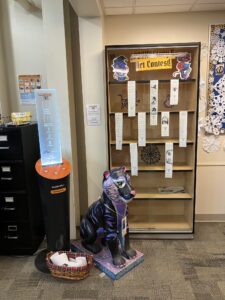
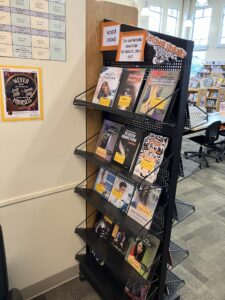
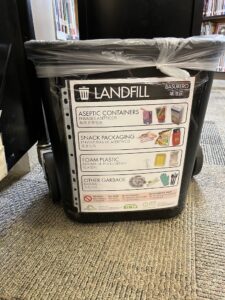
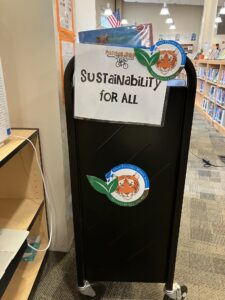
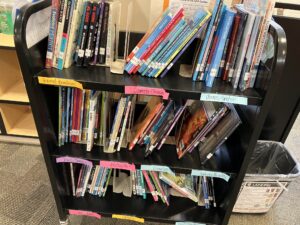
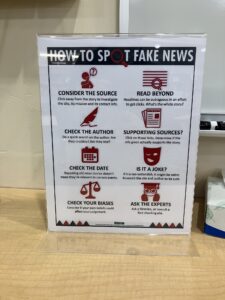 We also discussed collection development strategies and how they actively diversify the collection to reflect different voices and identities. I learned from Ms. Lee about how she as a teacher librarian, engages with the curriculum by collaborating with teachers on assignments such as an Ancient Egypt research project, having books ready on shelf on that topic. She was also ready to engage with students having to cite their sources. I also noticed the
We also discussed collection development strategies and how they actively diversify the collection to reflect different voices and identities. I learned from Ms. Lee about how she as a teacher librarian, engages with the curriculum by collaborating with teachers on assignments such as an Ancient Egypt research project, having books ready on shelf on that topic. She was also ready to engage with students having to cite their sources. I also noticed the 